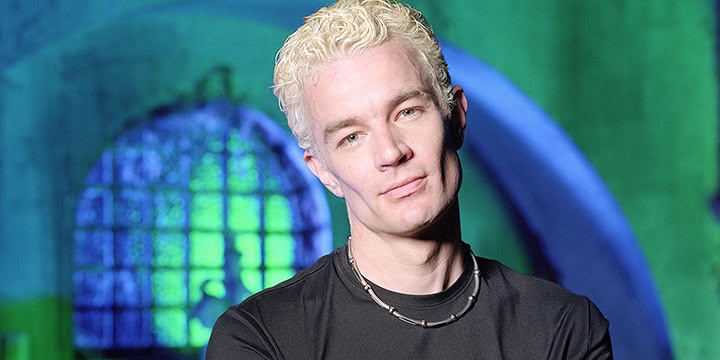“Do you want the answer that you want or do you want the truth?” asks James Marsters.
Being a serious and hard-hitting journalist, I have just asked my teenage crush what it was like kissing John Barrowman during his time on Torchwood. Marsters, also known as Spike from Buffy The Vampire Slayer, will be hitting Australian shores again this month for Supanova, so we’re chatting geek culture and fandom. But for now, let’s get back to the slash fiction of my dreams.
“The answer that you want is – it was awesome! It was fabulous! It was the best kiss of my life,” says Marsters. “The truth is that I don’t really know – kissing for camera is so different to kissing for passion, because your face morphs and distorts so it’s no longer a good image. So it’s a very different process trying to create anything that is glamorous. The more glamorous it is, the more fake it is.
“Frankly, I don’t really enjoy love scenes – they’re kind of weird for me. When you’re showing up to do a sex act for money, I kind of wonder what my job description is,” he laughs. “I need someone I can trust to get me through something that’s a little uncomfortable, so on that level I would rather kiss John Barrowman rather than anyone else. I’d kiss him any day.”
My inner fangirl satiated, we move on to how Marsters has forged a career out of sci-fi and fantasy roles. I wonder if this was always his goal, or simply how his career panned out.
“It was kind of synchronicity. I grew up avidly watching Star Trek and Planet Of The Apes, which were the two things you could be a fan of. I mean, you could have been a fan of Space: 1999, but not if you were a fan of Star Trek because we hated each other. I also read comic books and went to conventions from my early teens, so I was a fanboy from way back.”
So how did a sci-fi geek end up playing an undead sex symbol on one of the most culturally significant shows of all time, Buffy? “I came to Los Angeles having played nerds on cop shows and Northern Exposure and stuff, and then I met Joss Whedon and he cast me as a cool guy on a vampire show. So it kinda just happened, but I was also able to put my heart into the material because I was very comfortable with it and always have been.”
Working the convention circuit is of course part of the territory when an actor stars in such fandom-heavy shows – I’m interested in hearing whether this is something that Marsters enjoys, particularly as a self-professed fanboy.
“I really do. I used to have a theatre company in northern Chicago and we always used to talk about how to build communities and get people in the same room. I think it’s ironic because having joined the beast down in Hollywood, I find myself helping to create large communities, both physical ones at conventions and online.”
He continues, “It’s one of the things that makes me the happiest – if I find out that it’s someone’s first convention I tell them to meet people, because there are more funny and intelligent people standing right behind them than they would believe. The people on my side of the table, we’re weird but a little broken. We’re good for about 15 minutes, but the fans are the ones who are really cool. I always get into the most interesting conversations with them – I once met a man who worked on the Mars Rover and was dressed as a Wookie.”
As most fans will know, there is far more to these genres than initially meets the eye – they aren’t just highjinks in space. Fantasy and sci-fi are incredibly important tools that are often used for social change and to subvert the norm, which is one of Marsters’ favourite aspects of them.
“I tend to think of fantasy and sci-fi like a jester in a medieval court, because he was the only person who was allowed to call the king an idiot. As long as it was a joke, he got away with it. Because we have the veil of fantasy we can say things far more directly and sociologically than any other art form.
“One of my favourite titbits is how Star Wars is the most successful, subversive art commercially in the world. George Lucas thought of Apocalypse Now, that was his idea, and Star Wars has the same theme. The evil empire is America – they’re a technologically superior culture that’s bombing the poor people in the jungle. At the centre of Star Trek is the idea that we can allow ourselves to hope for the future – that is a powerful thing that totalitarian governments try to take away from people immediately. Star Trek is all about the strength of diversity, tolerance and difference. So many great ideas were exemplified by that TV series.”
Marsters feels privileged to have been part of the conversation through TV shows and films that have incited change in their own way.
“I was able to be on Buffy, which was a very subversive show in saying that women can defend themselves, or Torchwood, which said that gay people can be heroes, which at the time made people uncomfortable or even angry. These shows tend to talk about a lot and attract people who want to talk about these issues.”
Supanova Pop Culture Expo 2016 runsFriday June 17 – Sunday June 19 atSydney Showground. Expect to see James Marsters, along withTravis Fimmel, Juliet Landau, Brianna Hildebrand, Sean Astin and more.


































